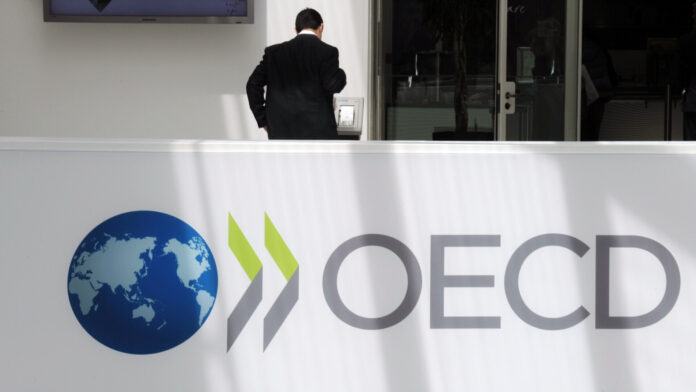The global economy should avoid a recession next year but the worst energy crisis since the 1970s will trigger a sharp slowdown with Europe hit hardest, the OECD said on Tuesday, urging central banks to keep hiking interest rates, according to Reuters.
World economic growth is set to slow from 3.1% this year to 2.2% next year before accelerating to 2.7% in 2024, the Organisation for Economic Cooperation and Development said, marginally raising its 2022 forecast.
“Our central scenario is not a global recession, but a significant growth slowdown for the world economy in 2023, as well as still high, albeit declining, inflation in many countries,” acting OECD chief economist Alvaro Santos Pereira said in the organisation’s latest Economic Outlook.
The OECD said the global slowdown was hitting economies unevenly, with Europe bearing the brunt as Russia’s war in Ukraine both hits business activity and drives an energy price spike.
It forecast the euro zone economy would slow from 3.3% growth this year to 0.5% in 2023 before recovering to expand by 1.4% in 2024. That was slightly better than in the OECD’s last outlook in September when 3.1% growth was estimated for this year and 0.3% in 2023.
It predicted a contraction of 0.3% next year in regional heavyweight Germany, whose industry-driven economy is highly dependent on Russian energy exports – less dire than the 0.7% slump expected in September.
Even in Europe outlooks diverged, with the French economy, which is far less dependent on Russian energy, expected to grow 0.6% next year. Italy was seen eking out 0.2% growth, which means several quarterly contractions are probable.
Outside the euro zone, the UK economy was seen shrinking 0.4% next year as it contends with rising interest rates, surging prices and weak confidence. Previously the OECD had expected 0.2% growth.
The United States economy was set to hold up better, with growth expected to slow from 1.8% this year to 0.5% in 2023 before rising to 1.0% in 2024. The OECD had previously expected growth of only 1.5% this year in the world’s biggest economy and its estimate for 2023 was unchanged.
China, which is not an OECD member, was one of the few major economies expected to see growth pick up next year after a wave of COVID lockdowns. Growth there was seen rising from 3.3% this year to 4.6% in 2023 and 4.1% in 2024, compared with previous forecasts for 2022 of 3.2% and 4.7% for 2023.
With energy prices likely to remain high, the OECD said central banks should keep raising interest rates to fight inflation, with signs that early hikes in Brazil and the United States were paying off.


